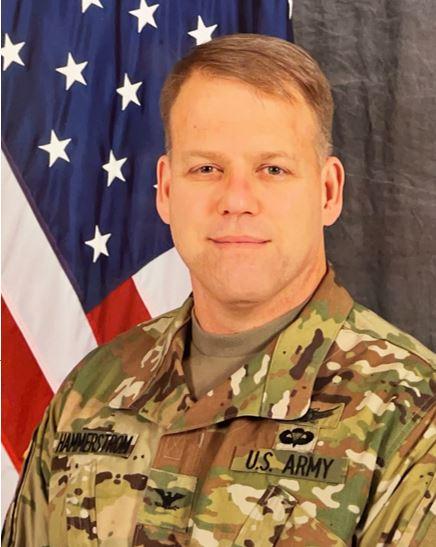From warfighter to business leader: lessons from a veteran on growing the next generation of talent in the Augusta cyber hub
Michael (“Hammer") Hammerstrom is a U.S. Army veteran and cybersecurity expert based in Augusta, Georgia. After retiring from the Army, during which he commanded one of only two Army cyber brigades, he joined Leidos as a senior business development lead in 2022. We asked him about his transition from warfighter to business leader, the meaning of cyber citizenship, Augusta's emergence as a cyber hub, and how to foster the next generation of cyber talent. His answers have been edited for clarity and length.
What was the transition like going from warfighter to business leader in cyberspace?
It has been a fantastic journey. The values I grew up with in the military transition very neatly into the company's values. Some of this is because I went from a technical field as a cyber officer into a very technical company. But it's also because Leidos' mission is to solve hard problems, and employees focus conversations on the solutions, not money, profit, or any of those kinds of concerns in the initial work. It's really been about, what is the hard problem that needs to be solved? And how do we solve it? And how do we solve it as quickly as possible? Leidos is focused on outcomes, doing the right thing, and taking care of its people.
What does it mean to be a cyber citizen?
It means you have an awareness of how to secure yourself in the current world, where everything is interconnected. It's also the name of the Cyber Citizen program, through which the community here is figuring out how to educate kids on how to better secure themselves and what that security in the current world really means.
Cyber competitions in schools help build this awareness as well. For example, through a program called CyberPatriots, school teams get to compete against other schools. That local competition becomes a state competition, and eventually, they compete nationally. Even at the junior high level, I've seen teams align themselves almost in the same workflows and team structures we use in the military. This next generation is learning to solve cyber problems through competition.
How is Augusta becoming a cyber hub?
The Army is building a cyber campus here at Fort Gordon that will be co-located with Army Cyber's headquarters, another facility they've built in the last couple of years. So, this area is really becoming a cyber hub for the Army. And because of these investments, there's the potential that Fort Gordon could become the center for joint cyber training.
It's really been a natural evolution for the community to become a center for cyber. You have all this talent here—not only because Army Cyber is creating it with the school and the operational experience—but because companies are bringing it in to support Army Cyber.
Because of all that activity, the state of Georgia, Augusta University, and other partners have built the Georgia Cyber Center, which is a public-private collaboration with academia, the government, and the private sector down by the Savannah River. It's in a very nice location in Augusta, bringing all three of those pillars together in an innovation center to keep all things “cyber" moving forward within the local communities.
As a former Army Cyber Protection Brigade commander, what impact do you see this activity having on the Army Cyber Command mission?
Identifying and retaining talent for the military is always a goal and can be challenging in the cyber field. You want to make sure you always keep the best and brightest on task because of the critical mission they perform for our nation. So, it's important for the schools to have the kinds of programs I've talked about to ensure that bright young minds have opportunities to grow.
That also comes with ensuring that the families are well taken care of and have opportunities themselves. Here in Augusta, it's not just that the Army is part of the community. The community is part of the Army. Yes, there's some housing on the base, but there are still a lot of Soldiers and their families embedded within the local communities here.
As a resident, what impact do you see it having on the community?
It creates opportunities for the kids, for example, to get scholarships. It broadens their awareness of potential opportunities in their future. And it exposes them to professionals doing this kind of work. So they can be more informed about career paths, which is good for the entire community.
For example, the Georgia Cyber Center has programs and computers available for kids who may not have as many resources at home, with support from industry and academia. The military also comes in to sponsor, coach, and at times, give kids awards just to make it a little more special, and so on.
What is Leidos' involvement in the cyber hub?
Leidos has a growing footprint in Augusta, with more than 200 employees working here now, many with families active in youth sports and other fun community and school activities. We partner with both the Georgia Cyber Center and the Cyber Fusion Innovation Center to engage with the cyber ecosystem and support the initiative to build and recruit the local cyber talent pipeline. As I mentioned previously, cyber talent, which is really about great people, is critical to tackling the really difficult problems that we need to solve for our customers and our nation.
To learn more, visit leidos.com/cyber-citizens.




